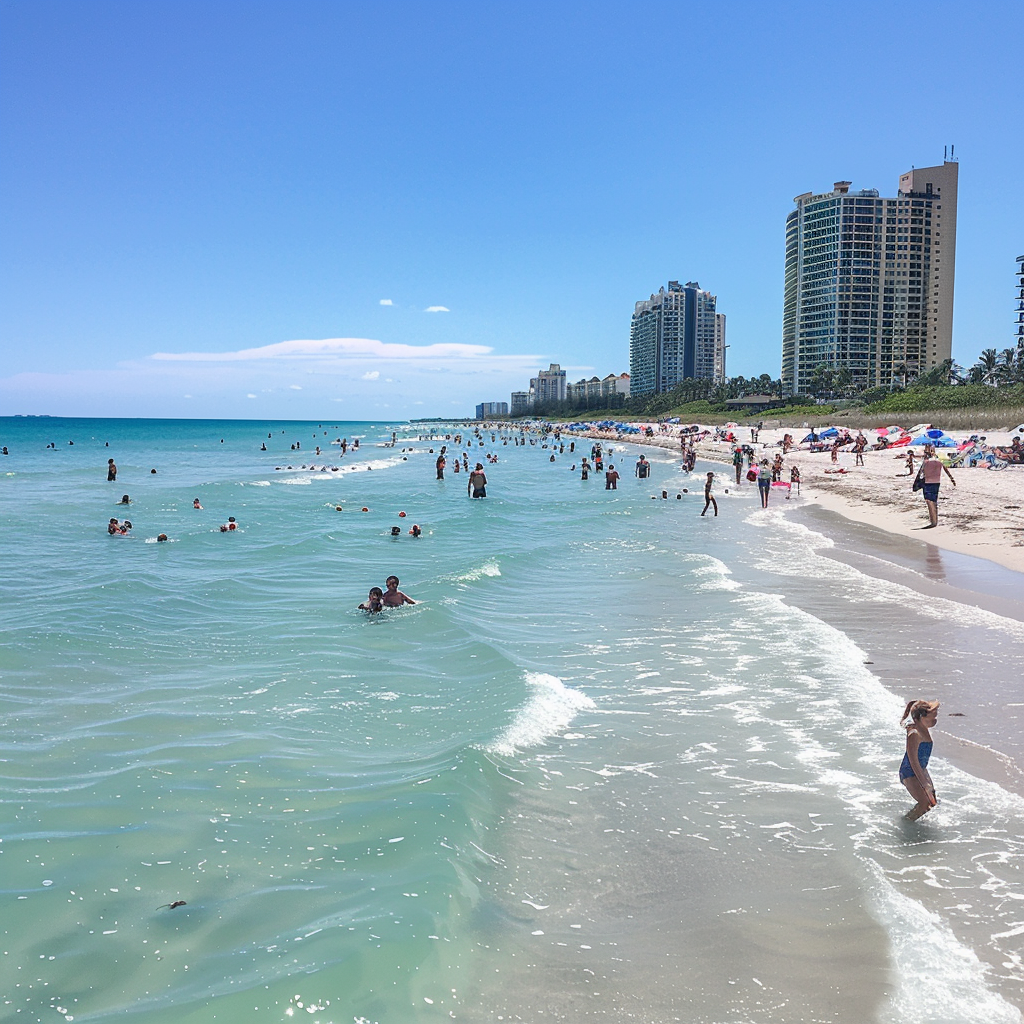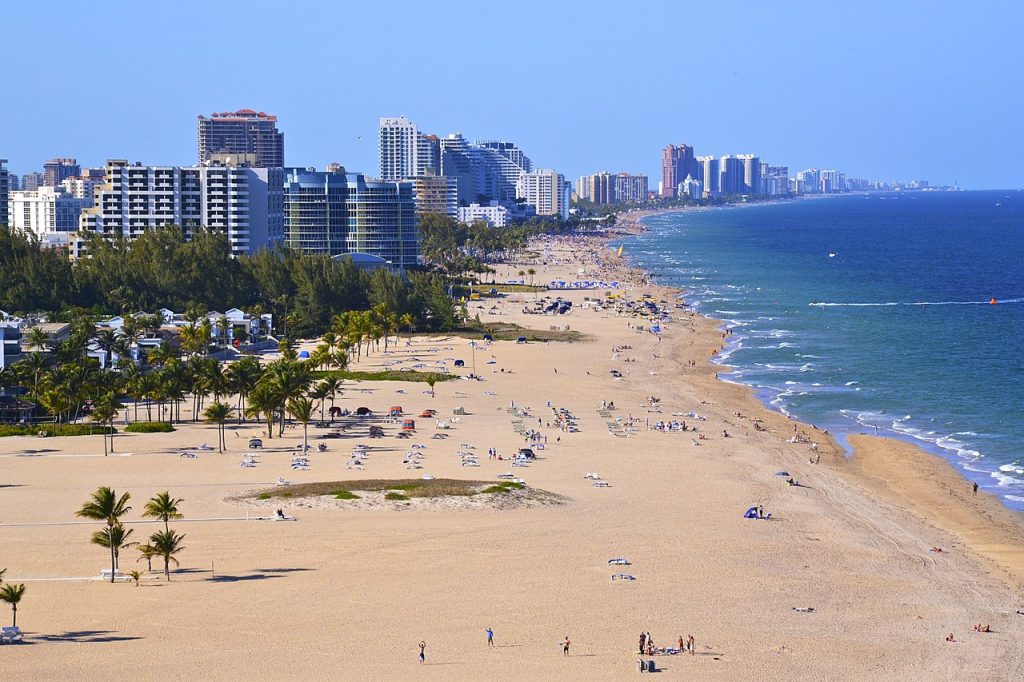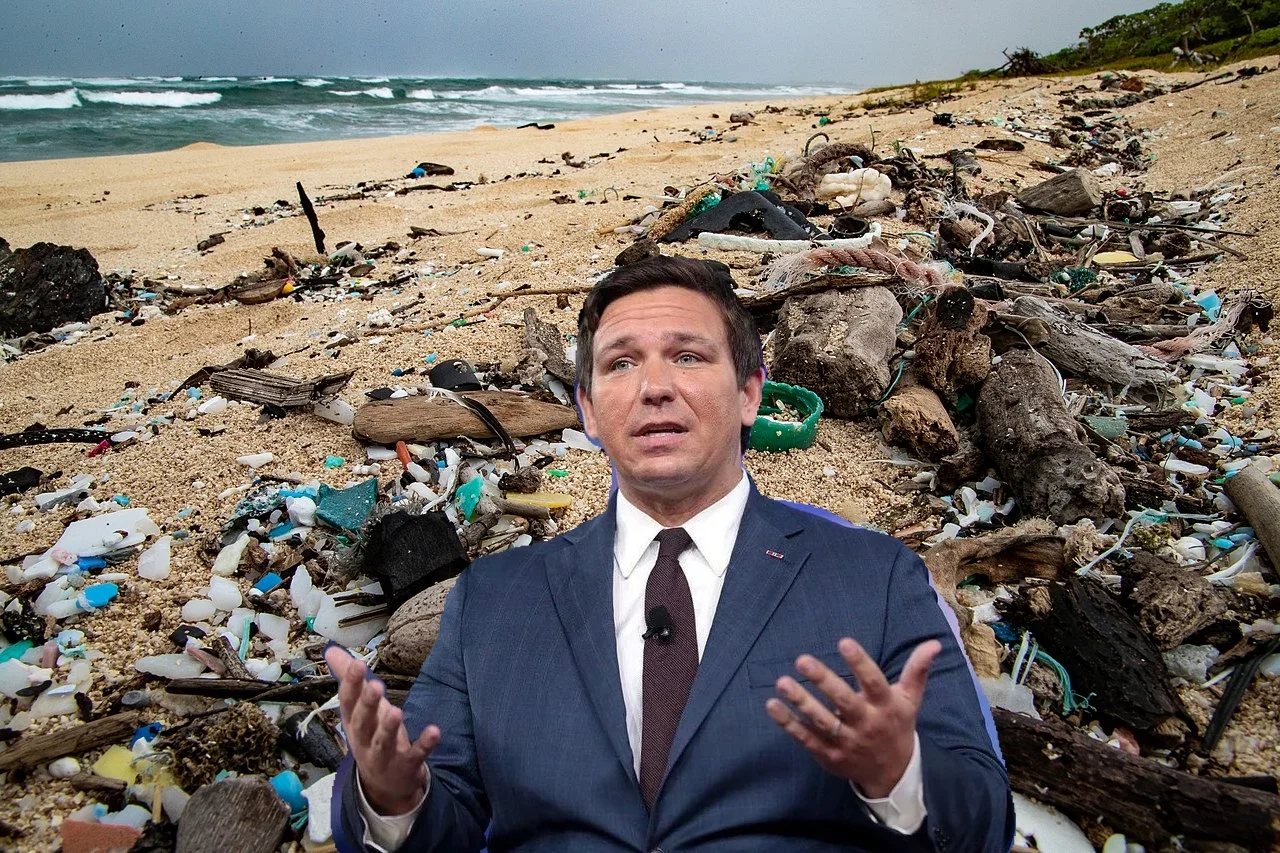Florida Governor Ron DeSantis recently vetoed a crucial beach safety bill that aimed to enhance the monitoring and prevention of water contamination at the state’s popular beaches. This decision has sparked significant controversy and concern among public health experts, environmentalists, and the general public. Critics argue that the veto may lead to increased exposure to dangerous pathogens, potentially resulting in severe health consequences and bad press for the administration.

Enterococci are bacteria commonly found in the intestines of humans and animals. In healthy individuals and when present in standard amounts, these bacteria usually do not cause problems. However, if Enterococci spread to other areas of the body, they can cause life-threatening infections. In 2017, doctors in the United States reported nearly 55,000 cases of Enterococci infections, resulting in 5,400 deaths.

The beach safety bill proposed measures to regularly test ocean water for harmful bacteria, including Enterococci, and to promptly alert the public when contamination levels were high. It also aimed to increase funding for beach cleanups and to implement stricter regulations on sources of pollution that contribute to water contamination. The bill granted the state the power to close beaches if tests showed that the water did not meet health standards. Local authorities would have been required to notify the Department of Health whenever water quality fell below recommended health standards. The Department of Health would then mandate the closure of affected beach waters and public bathing places if deemed necessary to protect public health.

Governor DeSantis vetoed the bill, citing concerns over regulatory overreach and the potential impact on local businesses. However, this decision overlooks the significant health risks posed by contaminated ocean water, particularly as climate change and increased human activity continue to exacerbate pollution levels. Just two months ago, Floridians were warned against swimming due to “fecal pollution,” highlighting the immediate relevance of the issue.

By vetoing the beach safety bill, Governor DeSantis has potentially set the stage for more significant problems in the future. Without regular monitoring and public alerts, individuals swimming in contaminated ocean water are at greater risk of contracting severe infections. The health risks are not theoretical; they are real and documented. Enterococci infections, while usually not a problem in healthy people, can become life-threatening if the bacteria spread to other areas of the body.

The lack of preventive measures could lead to an increase in Enterococci infections and other waterborne illnesses. This, in turn, could result in more hospitalizations and deaths, putting a strain on the healthcare system and generating negative media coverage. The administration could face significant backlash if individuals, particularly children and vulnerable populations, suffer or die as a result of swimming in contaminated waters that could have been monitored and managed under the proposed bill.

The decision to veto the beach safety bill may also have economic repercussions. Florida’s beaches are a major tourist attraction, contributing significantly to the state’s economy. News of contaminated water and related health issues could deter tourists, impacting local businesses and the broader economy. In contrast, implementing stringent safety measures could enhance Florida’s reputation as a safe and desirable destination, ultimately benefiting the economy.

Governor DeSantis’ veto of the beach safety bill is a risky gamble that prioritizes short-term economic concerns over long-term public health and safety. The potential for severe Enterococci infections and other waterborne illnesses poses a significant threat, not only to the health of Florida’s residents and visitors but also to the state’s reputation and economy. By overlooking these risks, the administration may face more substantial problems and negative publicity in the future if preventable deaths occur. It is imperative that public health and safety take precedence to protect individuals and maintain the trust and confidence of the public.





